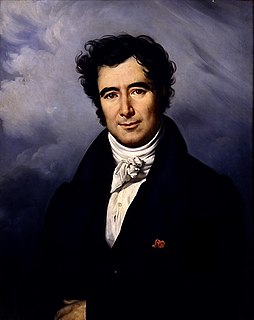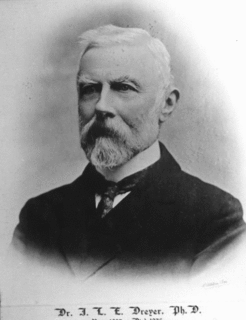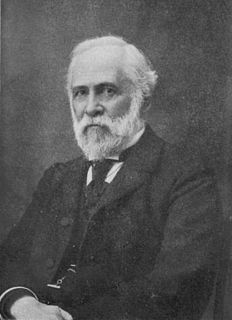
Louis Fabry was a French astronomer who was born in Marseille, April 20, 1862, and died in Les Lecques, January 26, 1939.

Louis Fabry was a French astronomer who was born in Marseille, April 20, 1862, and died in Les Lecques, January 26, 1939.
Louis Fabry was born in 1862 to a Provençal family with five boys. His brothers Charles, Eugène and Auguste were, respectively, a physicist, a mathematician and a magistrate.
From childhood he showed a keen taste for astronomy and mathematics. He joined the École Polytechnique in 1880, before his brother Eugène and five years before his brother Charles.
After receiving his licenciate, he became a student in the school of astronomy that Admiral Mouchez had just opened at the Paris Observatory. He was then sent to the Nice Observatory and remained there until 1890. It was during his stay in Nice he married and became widowed a few months after.
Back in his hometown, he joined the Marseille Observatory where he was promoted to assistant astronomer in 1895. He remained there until his retirement in 1924.

Dominique François Jean Arago, known simply as François Arago, was a French mathematician, physicist, astronomer, freemason, supporter of the Carbonari revolutionaries and politician.

Urbain Jean Joseph Le Verrier FRS (FOR) HFRSE was a French astronomer and mathematician who specialized in celestial mechanics and is best known for predicting the existence and position of Neptune using only mathematics. The calculations were made to explain discrepancies with Uranus's orbit and the laws of Kepler and Newton. Le Verrier sent the coordinates to Johann Gottfried Galle in Berlin, asking him to verify. Galle found Neptune in the same night he received Le Verrier's letter, within 1° of the predicted position. The discovery of Neptune is widely regarded as a dramatic validation of celestial mechanics, and is one of the most remarkable moments of 19th-century science.

The Paris Observatory, a research institution of the Paris Sciences et Lettres University, is the foremost astronomical observatory of France, and one of the largest astronomical centers in the world. Its historic building is on the Left Bank of the Seine in central Paris, but most of the staff work on a satellite campus in Meudon, a suburb southwest of Paris.
Jean Cabannes was a French physicist specialising in optics.

Édouard Jean-Marie Stephan was a French astronomer. His surname is sometimes spelled Stéphan in some literature, but this is apparently erroneous.

John Louis Emil Dreyer was a Danish/British astronomer.

Eugène Michel Antoniadi was a Greek-French astronomer.

Charles Augustus Young one of the foremost solar spectroscopist astronomers in the United States. He observed solar eclipses and worked on spectroscopy of the Sun. He observed a solar flare with a spectroscope on 3 August 1872, and also noted that it coincided with a magnetic storm on Earth.

Jean-Charles Houzeau de Lehaie was a Belgian astronomer and journalist. A French speaker, he moved to New Orleans after getting in trouble for his politics in Belgium.
The Prix Pierre Guzman was the name given to two prizes, one astronomical and one medical. Both were established by the will of Anne Emilie Clara Goguet, wife of Marc Guzman, and named after her son Pierre Guzman.

Marseille Observatory is an astronomical observatory located in Marseille, France, with a history that goes back to the early 18th century. In its 1877 incarnation, it was the discovery site of a group of galaxies known as Stephan's Quintet, discovered by its director Édouard Stephan. Marseille Observatory is now run as a joint research unit by Aix-Marseille University and the French National Center for Scientific Research (CNRS).

GiovanniDomenico Cassini, also known as Jean-Dominique Cassini was an Italian mathematician, astronomer and engineer. Cassini was born in Perinaldo, near Imperia, at that time in the County of Nice, part of the Savoyard state. Cassini is known for his work on astronomy and engineering. He discovered four satellites of the planet Saturn and noted the division of the rings of Saturn; the Cassini Division was named after him. Giovanni Domenico Cassini was also the first of his family to begin work on the project of creating a topographic map of France.
Henry Crozier Keating Plummer FRS FRAS was an English astronomer.

Nicholas Ulrich Mayall was an American observational astronomer. After obtaining his doctorate from the University of California, Berkeley, Mayall worked at the Lick Observatory, where he remained from 1934 to 1960, except for a brief period at MIT's Radiation Laboratory during World War II.

The Société astronomique de France, the French astronomical society, is a non-profit association in the public interest organized under French law. Founded by astronomer Camille Flammarion in 1887, its purpose is to promote the development and practice of astronomy.
The Janssen Medal is an astrophysics award presented by the French Academy of Sciences to those who have made advances in this area of science.
Jean Bosler was a French astronomer and author of several books.
Robert Jonckheere was a French astronomer. He is known for his discovery of more than 3350 double stars. A. R. Jonckheere, psychologist and statistician at University College London, was his son.

François Folie (1833–1905) was a Belgian astronomer. He was the Administer at the University of Liège, director of the Institute of Astrophysics at the Cointe Observatory, and director of the Royal Observatory of Belgium.

Charles Louis François André was a French astronomer, founder of the Lyon observatory which he directed from 1878 until his death.